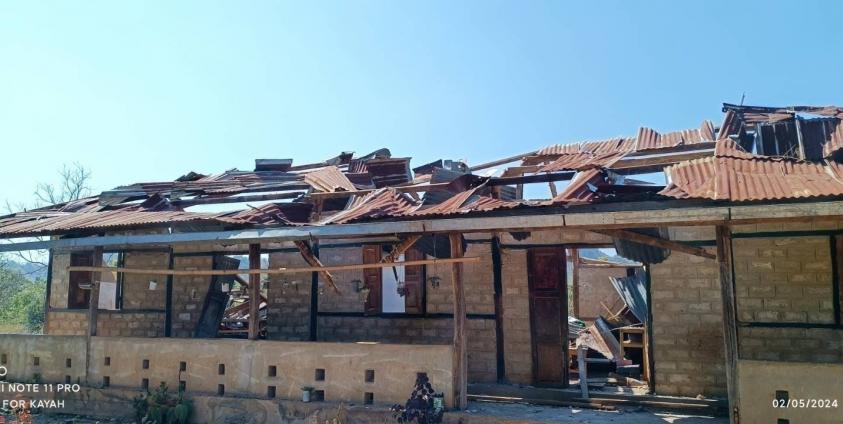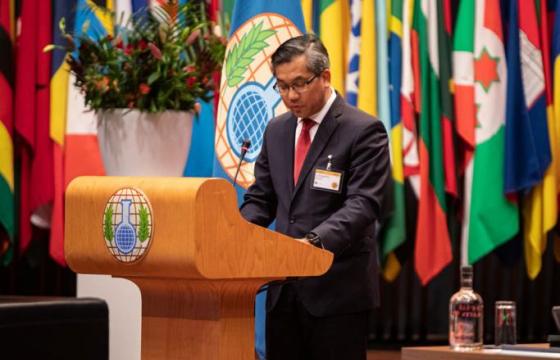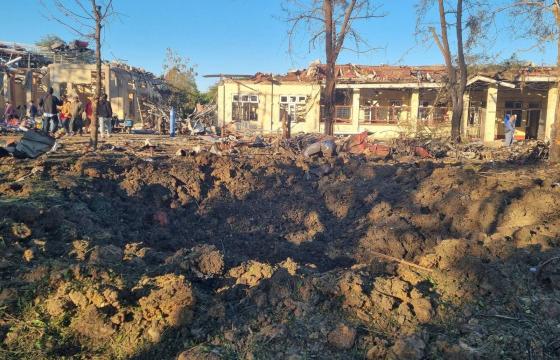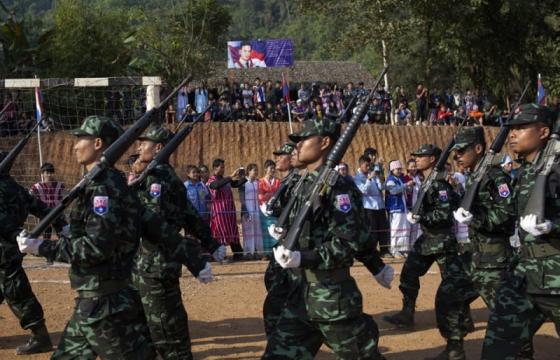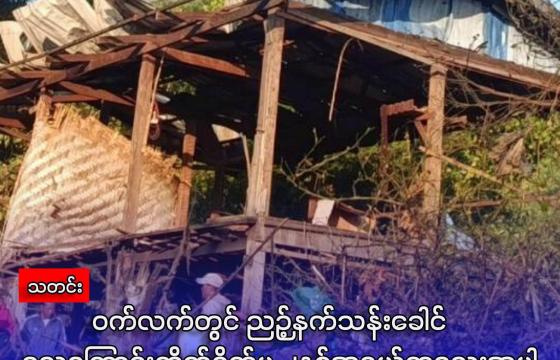Myanmar Witness has just published an important report on the threat to schools in Myanmar, a report welcomed by the UK Foreign Commonwealth and Development Office.
Documenting damage to Myanmar’s education system since the 2021 coup, Myanmar Witness has documented 174 distinct incidents of violence affecting educational institutions in Myanmar since February 2021. Schools have been damaged by airstrikes, weaponry, and fire, with some hit multiple times. These events have caused significant infrastructure damage, impacting children’s education in the short and long term.
Myanmar Witness’ analysis draws from two primary datasets: the primary dataset (113 incidents), and a drone-specific dataset (61 incidents). The data reveals a steady increase in reported incidents affecting schools since February 2021, peaking in March 2024. The trend is consistent with data from the Armed Conflict Location and Event Data (ACLED) on school infrastructure. Additional sources, including the Global Coalition to Protect Education from Attack (GCPEA) and United Nations Human Rights Council (UN HRC) analysis, also indicate a rise since the coup.
The Myanmar military is implicated in 90 of the 113 cases documented in the primary dataset, with just under half resulting in major damage or total destruction to school infrastructure. In contrast, People’s Defence Force (PDF) linked incidents generally caused less harm to educational infrastructure.
Sagaing Region has the highest number of incidents impacting school infrastructure (36 incidents, 33% of dataset), followed by Shan, Kayin and Kayah (11 incidents each, 10.1% of dataset, respectively) reflecting their status as major conflict zones. The drone specific dataset also indicates 36.8% of drone incidents occurred in Sagaing.
Myanmar Witness has assessed the varying levels of damage inflicted upon schools in their primary dataset, as well as examining damage to the surrounding areas (villages and towns).
A total of 31.5% of schools sustained major damage, potentially rendering the schools inoperable, while 9% were completely destroyed (primary dataset). The high percentage of incidents affecting surrounding areas suggests schools may not have been the main target. Thus, damage to schools could be the result of collateral damage during conflict.
Myanmar Witness has collected 64 reports of fatalities and 106 reports of injuries, though very few deaths have been verified due to challenges in verifying and geolocating user-generated content of the victims.
A number of these incidents may be linked to military use of school buildings, though Myanmar Witness cannot fully verify these claims. Regardless, these actions impact educational facilities, reducing access to learning materials and resources for students. Myanmar Witness recommends that international lawyers investigate these events to determine the status of these school buildings as protected sites under international law.
This report presents the available data on incidents affecting schools in Myanmar, highlights the frequency of such events in the context of the ongoing conflict, and seeks to hold those responsible to account. Myanmar Witness also compiled case studies that provide an insight into the trends uncovered during this investigation. Myanmar Witness says it will continue to monitor and report on incidents that impact on educational infrastructure in the country.
The UK Foreign Commonwealth and Development Office (FCDO) echoes the main theme of the Myanmar Witness report.
An FCDO spokesperson said: “The data is clear: schools are being destroyed, civilians seriously hurt and educational opportunities further suppressed in Myanmar.
“Schools are meant to be a place of safety and opportunity, not collateral in a conflict. ASEAN is critical to finding a path to peace in Myanmar. We again reiterate our call to all parties, particularly the Myanmar military, to refrain from airstrikes, safeguard civilians, and protect civilian infrastructure.”
The UK says it is committed to holding those responsible in Myanmar to account and has provided £3.5m to Myanmar Witness since 2021.
The UK has also provided £800,000 to the Independent Investigative Mechanism on Myanmar (IIMM) to ensure justice for victims of serious international crimes in Myanmar and hold the perpetrators to account.
The UK has helped support over 270,000 children access education, including 135,000 female students between June 2023 – November 2024.

